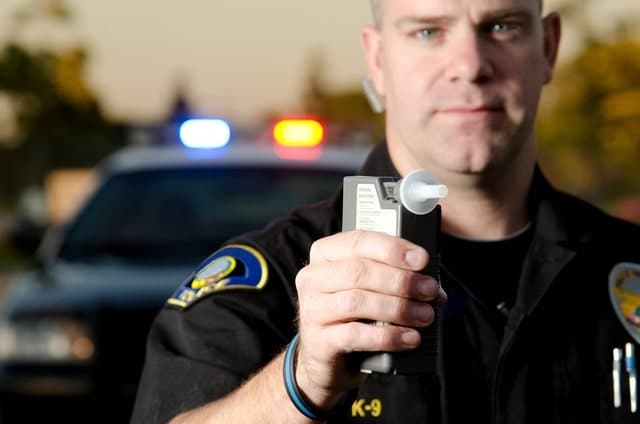Understanding Common Defenses to DWI Charges
Understanding DWI Defense Strategies
We take the drunk driving defense seriously at the Benjamin Law Firm, LLC. Some lawyers favor plea deals or quick fixes that may not be in their client’s best interests. But our DWI lawyers in KC Mo explore every aspect of your case to assess your legal options. We will reveal the truth if your rights were violated or the law enforcement officials made mistakes.
Pleading guilty is far from your only option in a DWI case. In fact, there are several common DUI defenses to contest the charges against you.
Defenses to DWI Charges
Challenging the Traffic Stop
For a law enforcement officer to pull you over, they need reasonable suspicion that you have been or are currently engaging in criminal activity or violating traffic laws. You can be pulled over for a vehicle violation (like a burned-out headlight), a moving violation (like speeding), or erratic/dangerous driving (such as swerving).
Reasonable suspicion is a lower standard of proof than probable cause, but it still must be based on specific facts and observations. It cannot be based on a “hunch” or a “gut feeling.”
If the police officers cannot articulate why they pulled you over or the reason given seems dubious, our DUI defense attorney may be able to challenge the stop in court. If the stop was unjustified, everything happening afterward might not be admissible in court.
Citing Problems With Field Sobriety Tests
Walking a straight line heel to toe, following a moving object with your eyes, and standing on one leg are standard tests to gauge whether a driver might be intoxicated. They are a precursor to asking for a breath or blood test. But they are certainly not conclusive and can be misinterpreted.
Here are just some of the problems associated with field sobriety tests (FSTs):
-
Balance and coordination issues can be related to medical problems and do not necessarily indicate intoxication.
-
Officers do not always administer tests correctly, which can be challenged in court.
-
Interpreting FST results is subjective, and not all officers are trained correctly.
-
Testing often takes place on the side of a busy, dark highway with bright lights going by and potentially bad weather. These testing conditions are far from ideal, even for completely sober drivers.
If field sobriety tests were administered incorrectly or interpreted incorrectly, an experienced DUI lawyer might be able to challenge the results, potentially invalidating the subsequent breath/blood tests that followed.
Questioning Whether You Were in Actual Physical Control of the Vehicle
In some cases, individuals may be charged with DUI even if they were not driving at the time of arrest. Missouri law recognizes “actual physical control,” which means controlling a vehicle while intoxicated, even if it is not in motion. A knowledgeable DUI attorney may argue that the defendant did not have actual physical control of the vehicle, challenging the validity of the DUI charges.
Challenging the Testing Equipment
If you were charged with drunk driving based on the results of a breath-alcohol test (often called a Breathalyzer), it is sometimes possible to challenge the device’s accuracy. These machines must be regularly serviced and calibrated. We can subpoena the service records to determine if the machine has been maintained and calibrated correctly.
Illegal DUI Investigation
Law enforcement officers must follow strict procedures when making a DUI arrest. These include reading the suspect’s rights, correctly administering tests, and collecting evidence properly. If the DUI arresting officer fails to adhere to these requirements, their collected evidence may be considered objectionable, making it difficult for prosecutors to prove their case.
Demonstrating Rising BAC
A rising blood alcohol concentration defense asserts that your BAC level was below the legal limit while you were driving but rose to an illegal level by the time the test was administered. This defense argues that alcohol was still being absorbed into your system between driving and testing, leading to an inaccurate depiction of your impairment level at the time of operation.
Disputing Observations and Testimony
The arresting officer’s observations and testimony are crucial in DWI cases. Challenging the officer’s credibility, inconsistencies in their report, or other factors that could compromise their reliability can be an effective defense strategy.
Medical Conditions or Medications
Certain medical conditions or prescription medications can affect an individual’s ability to perform sobriety tests or may produce false positives on breathalyzer tests. Evidence of a medical condition or medication that could have influenced the accused’s behavior or test results can be a valid defense.
Contact an Experienced DUI Attorney for a Free Consultation
Challenging a DWI charge is never easy, but it can be done. The experienced DUI attorneys at the Benjamin Law Firm, LLC are here to help. Our defense attorneys can review the details of your case, explain your options, and work hard to protect your rights.
To schedule your free initial consultation, email us or call 816-846-2219.















